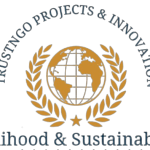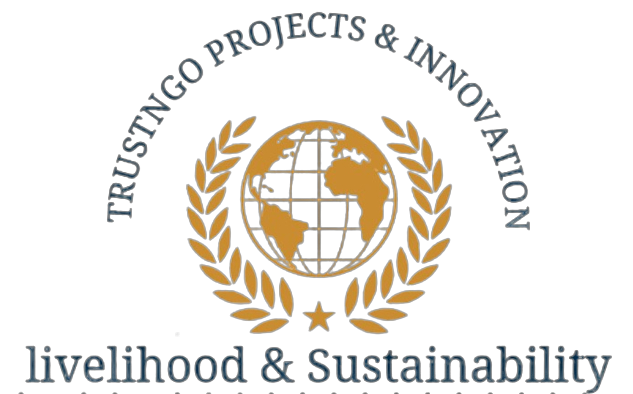Skill training and awareness program for domestic workers in the resettlement colonies of Delhi
- Introduction: Trustngo Projects and Innovation, a non-profit organization dedicated to fostering innovation and social development, successfully implemented a skill training and awareness program for domestic workers in the resettlement colonies of Delhi. The program aimed to empower domestic workers by providing them with essential skills, knowledge, and awareness to enhance their employability, socio-economic status, and overall well-being.
- a) Program Objectives:
- To provide skill development training to domestic workers, equipping them with marketable skills and enhancing their employability.
- To raise awareness among domestic workers about their rights, entitlements, safety measures, and access to social welfare schemes.
- To empower domestic workers by imparting knowledge on financial literacy, health and hygiene, and personal development.
- To facilitate networking and community-building among domestic workers for mutual support and collective empowerment.
- Target Location: The program focused on the resettlement colonies of Delhi, where a significant number of domestic workers reside. These colonies have a diverse population of marginalized communities, including domestic workers who face various socio-economic challenges.
- Program Activities: Skill Development Training:
- Conducted comprehensive training sessions on essential skills required for domestic work, including housekeeping, cooking, childcare, and eldercare.
- Engaged professional trainers to deliver hands-on training, ensuring participants acquired practical skills.
- Organized workshops on effective communication, time management, and customer service to enhance professional competence.
- b) Rights and Welfare Awareness:
- Conducted awareness sessions on domestic workers’ rights, legal protections, and entitlements.
- Provided information on social welfare schemes, such as health insurance, pension, and education benefits available to domestic workers.
- Facilitated sessions on occupational safety, work ethics, and conflict resolution to ensure a safe and respectful work environment.
- c) Financial Literacy and Personal Development:
- Organized workshops on financial literacy, budgeting, savings, and access to banking services.
- Provided guidance on opening bank accounts, availing insurance, and managing personal finances effectively.
- Conducted sessions on personal development, self-esteem, and goal setting, empowering domestic workers to aspire for personal and professional growth.
- d) Health and Hygiene Awareness:
- Raised awareness on health and hygiene practices, including personal hygiene, cleanliness, and sanitation.
- Conducted sessions on preventive healthcare, common illnesses, and access to healthcare facilities.
- Distributed informational materials and resources on maintaining a healthy lifestyle and seeking medical assistance when needed.
- e) Networking and Community-Building:
- Organized regular community meetings and interactive sessions for domestic workers to share experiences, challenges, and successes.
- Facilitated the formation of support groups and networks to foster mutual assistance and solidarity.
- Encouraged participants to actively participate in local community initiatives, advocating for their rights and welfare.
- Program Outcomes:
- Skill Enhancement: The participants gained valuable skills, enabling them to perform domestic work with proficiency and confidence, leading to increased employability and higher wages.
- Empowerment: Domestic workers became aware of their rights, entitlements, and legal protections, empowering them to assert themselves in the workplace and demand fair treatment.
- Improved Well-being: Participants acquired knowledge on health and hygiene practices, leading to improved personal and family well-being.
- Financial Independence: Through financial literacy training, domestic workers learned effective money management skills, enabling them to save, invest, and secure their financial future.
- Community Engagement: The program fostered a sense of community among domestic workers, facilitating mutual support, networking, and collective advocacy.
- Challenges Faced:
- Limited Resources: Adequate resources, such as training facilities and equipment, were a challenge to procure, requiring careful planning and coordination.
- Awareness and Accessibility: Reaching out to all domestic workers in the resettlement colonies and ensuring their participation was a persistent challenge, demanding effective communication strategies and engagement techniques.
- Sustainability: Ensuring the long-term sustainability of the program and its impact beyond the implementation phase required strategic partnerships, continuous monitoring, and resource mobilization efforts.
- Conclusion: The skill training and awareness program for domestic workers in the resettlement colonies of Delhi, implemented by Trustngo Projects and Innovation, made a significant impact on the lives of participants. Through skill enhancement, awareness building, and community engagement, domestic workers were empowered to lead more fulfilling and economically secure lives. The program’s success underscores the importance of addressing the needs of marginalized communities and supporting their journey towards socio-economic empowerment.

